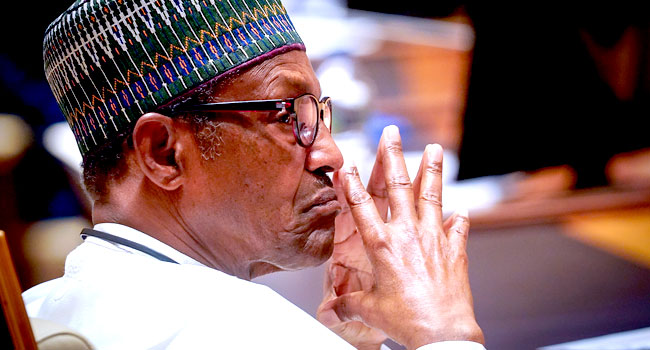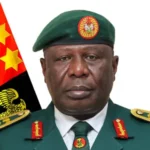Happy New Year, Nigeria! According to the calendar of the federal government, insecurity is now ‘over’.
Following seven years’ worth of President Muhammadu Buhari’s meetings with security chiefs, various and persistent directives and orders, repeated budgetary provisions and outlays, declarations of intent and ambition, speeches at home and abroad, expensive orders of sophisticated military equipment, one of which led to an unresolved political blowout in July 2019 over the government’s spending of $1bn from the Excess Crude Account, insecurity in Nigeria slammed to a halt at midnight last night, December 31, 2022.
It is a new day and a new year! Mr. Buhari has done exactly as he promised as he ran for office in 2015, reiterated on a “Next Level” basis in 2019, and routinely assured Nigerians whenever a microphone was placed in front of him: he has ended the plague of insecurity.
For anyone who has great faith in the word of the government, this first day of 2023 is surely one to celebrate. Remember, only as recently as October 2022, Rauf Aregbesola, who is Buhari’s Minister of the Interior, reminded Nigerians that the insecurity nationwide would end in December.
According to the Minister, Mr. Buhari himself had given his security agencies yesterday’s deadline. “I believe that nobody is resting in [any of] the arms of government with the mandate of maintaining law and order, guaranteeing security and eliminating threats,” Mr. Aregbesola stressed. “We are at it, and in the first instance, we must ask ourselves, governance is about ensuring the security of lives and properties.
“We will eliminate all insecurity issues by December…Nigerians will definitely heave a sigh of relief at the end of the day.”
It has been quite some time getting here. Earlier, during his Democracy Day Speech in June 2021, Mr. Buhari recalled his pre-election commitment, just as he had done dozens of time before.
“When you elected me as your President in 2015, you did so knowing that I will put an end to the growing insecurity, especially the insurgency in the North East, but the unintended consequences of our scattering them in the North East pushed them further in-country which is what we are now facing and dealing with.
“We will, by the Grace of God put an end to these challenges too. Unfortunately, like in most conflict situations, some Nigerian criminals are taking undue advantage of a difficult situation and profiteering therefrom with the misguided belief that adherence to the democratic norms handicaps this administration from frontally and decisively tackling them.
“We are already addressing these obstacles and we will soon bring some of these culprits to justice.”
And then one month later, Mr. Buhari again restated his pledge when he held a presidential dinner for members of the National Assembly in Abuja. He told them that his administration would use everything within its powers to end insecurity in the country and bring the criminals responsible to justice.
And so, with December 2022 now accomplished, Nigerians must jubilate that Mr. Buhari’s pledge about insecurity also has. As of last night, Nigeria is now a secure country.
This means that no longer are members of ISWAP and Boko Haram controlling an inch of Nigerian territory. No longer is banditry the nation’s most prominent industry. No longer are parents afraid that their children may be snatched from classrooms to be forced into marriage or converted into soldiers.
This means that no longer are there AK47-wielding cattle herdsmen overrunning farms and towns and villages. No longer are Nigerians to be afraid of sundry criminals emerging from badly-maintained highways to make their choice of travelers for kidnapping-for-ransom or the harvesting of body parts.
This means that no longer will intercity train services be sacked by criminals who are better-armed and more intelligent than members of Nigeria’s security services. Train services will no longer be requiring the protection of the Nigeria Air Force or expensive private security.
It further means that no longer are security institutions such as Kuje Prison and the Nigeria Defence Academy and police stations and airports in any danger of being taken by armed bandits at will. It means that no longer will Buhari’s armed presidential convoys require the protection of armed presidential convoys or the Nigeria Air Force.
It means that Nigerian businesses and offices are no longer in danger of being ransacked by unknown gunmen taking advantage of the indifference of indifferent governments which look the other way when citizens need them the most. It means that citizens can now walk the streets, unafraid either of other men who attack simply because they can, or of policemen in uniforms who shoot and kill citizens because the citizens are unarmed.
This means that as decreed and declared by Mr. Buhari, the era of insecurity that came into operation during the reign of his predecessors is over. Nigerians can now emerge from the shadows and from hiding and resume their lives.
It means that neither Mr. Buhari nor his security chiefs nor the state governors will ever again be bothered with questions about insecurity, such as why they themselves need extensive and heavily-armed convoys and road closures just to get to the airport or to return home. It means that even the wife of the president will find her heavily-fortified official home to be secure enough for her to live in, rather than another country.
But of course, everyone knows that nothing is often what it seems in Nigeria, particularly when the motivation is an official pronouncement. Nigeria did not become secure as of last midnight, just as it never became more secure in the past seven and a half years because Mr. Buhari broadcast his directives into every television camera.
Buhari did not start the insecurity in Nigeria, but he acquired the presidency partly by bragging that he was the man to end it. Instead, he has boosted it year by year because he neither really understood the challenge nor was he willing to do what was required to bring it under control.
Prominent among those problems are that the Nigeria leader arrived in office lacking genuine commitment and for the insecurity and any other challenge that Nigeria faced. It is why there is no aspect of his brief in which he accomplished anything beyond platitudes.
Sadly, Nigeria is increasingly insecure because of—rather than despite—Mr. Buhari. Despite his government’s claims, Nigeria is worse than before his arrival, and the entire world knows it: it is more chaotic, more dysfunctional, and exceedingly more corrupt. That is one explanation why some of Nigeria’s most infernal creatures are currently trying to succeed him next May.
That is why, as we enter January 2023, and with less than five months before Mr. Buhari leaves office, is for him to be apologizing profusely for the cynicism and betrayal of the outgoing menace he superintends.
Happy New Year, Nigeria? Please!
This column welcomes rebuttals from interested government officials.
• @Sonala.Olumhense


 Join Daily Trust WhatsApp Community For Quick Access To News and Happenings Around You.
Join Daily Trust WhatsApp Community For Quick Access To News and Happenings Around You.


